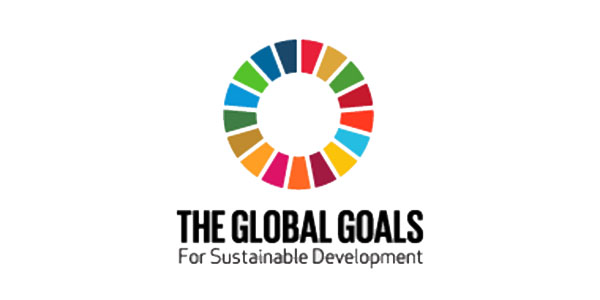June 8, 2016–The late, great John Whitehead, who was a key leader at CECP and a good friend to the UN and the UN Foundation wrote: “I am convinced that a social conscience is sound business practice.” The United Nations Foundation could not agree more.
Today the business community and the development sector have a once-in-a-generation opportunity to collectively focus on “purpose” to create a more peaceful, prosperous world that benefits us all.
Why is this a unique moment? Because we have a new framework for development adopted last year by 193 nations at the United Nations called the Sustainable Development Goals.
These new global goals reflect the challenges and complexity of today’s world. They are a set of 17 comprehensive, connected, and concrete goals on our economic, social, and environmental challenges.
The new goals build on their predecessor, the Millennium Development Goals (MDGs), to continue the progress we’ve made since 2000 – reducing child deaths by more than half and nearly closing the gender gap in primary education, among other achievements.
The MDGs showed us that global goals work by creating a common to-do list with concrete, measurable targets that catalyzed global cooperation and action – leading to results. This is a business approach, and why Bill and Melinda Gates, among others, adopted them to achieve their foundation’s goals.
Yet there is more work to do to reduce inequality, ensure all children get an education, realize gender equality, and halt the effects of climate change – and to do this everywhere, from New York to New Delhi.
The UN and the development community recognize that we need all hands on deck, especially the private sector, to help achieve the Sustainable Development Goals. The private sector has more than money to offer: private sector expertise, technologies, and knowledge are vital to success.
The first question we usually hear from companies is: Why should we care about the global goals?
Many companies are ahead of the curve, recognizing that advancing sustainable development is good for business. Here’s why:
- Progress on the global goals helps people move out of poverty and create healthier communities, results that grow economies and open up new markets;
- Markets crave stability, and sustainable development minimizes risks of instability from climate change, inequality, extreme poverty, and other factors; and
- Customers increasingly care about their social good footprint. They want to support businesses that are environmentally and socially-conscious.
As a private sector colleague said to me, “The smart money is on those companies that put people and planet right there with profit.”
Put simply: More and more, companies are moving from corporate social responsibility to corporate social opportunity, from looking at purpose to being driven by purpose, from treating social good as an add-on to making it a core focus.
Businesses, civil society groups, the UN, and other institutions are now recognizing the mutual benefits of working together toward a sustainable future. The next question is: How can businesses get involved?
A number of companies are already getting to work on the Sustainable Development Goals, and here are some ways to engage:
- Align your organization’s business models and plans around the goals – whether it’s one specific goal or all of them.
- Help accelerate the potential of the data revolution. We know that without better collection of data, the global goals will be hard to measure, track, and reach.
- Work with foundations and philanthropists to seed and support innovation that can then be taken to scale by governments.
- Work within your sector. Choose partners. Drive change. Help governments follow.
- Look to the UN to help advance your cause. This is not your grandparents’ UN. The UN has launched multi-stakeholder partnerships to bring organizations from across many sectors together around a cause. This deepens coordination, collaboration, and learning around a common challenge.
The UN’s Global Compact, the World Business Council for Sustainable Development, and the UN Foundation’s Business Council for the UN are three platforms that can help connect you to the Sustainable Development Goals.
None of us has all of the answers. These are complex problems, and figuring out how to work together will not always be easy – but it’s important we do so. We want to hear from the business community about how we can work together better.
Businesses are moving from partners to leaders in development. As CECP Founder Paul Newman said, “Corporations could be a force for good in society.” Today, we should change “could” to “should.”


